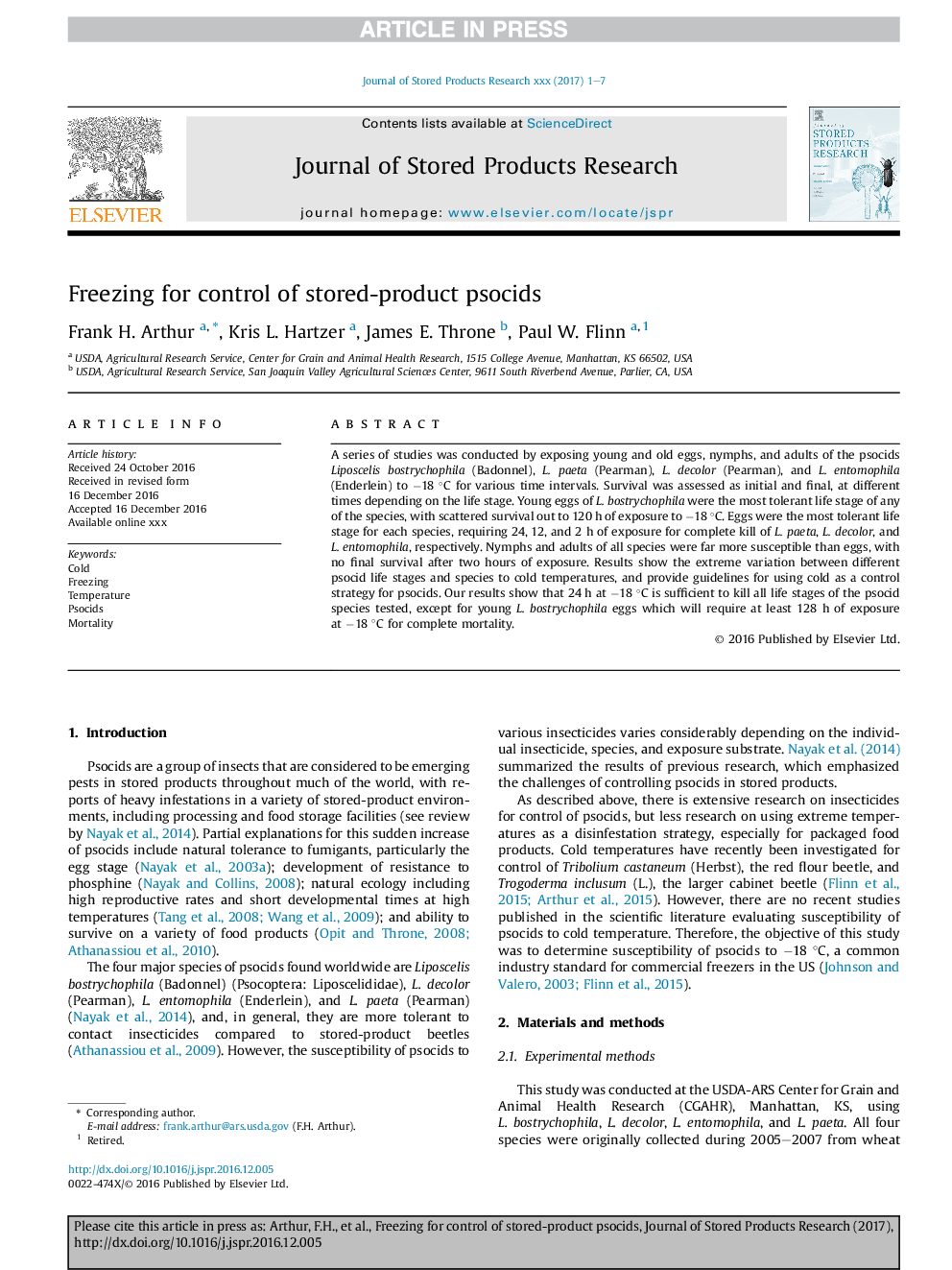| Article ID | Journal | Published Year | Pages | File Type |
|---|---|---|---|---|
| 5762577 | Journal of Stored Products Research | 2017 | 7 Pages |
Abstract
A series of studies was conducted by exposing young and old eggs, nymphs, and adults of the psocids Liposcelis bostrychophila (Badonnel), L. paeta (Pearman), L. decolor (Pearman), and L. entomophila (Enderlein) to â18 °C for various time intervals. Survival was assessed as initial and final, at different times depending on the life stage. Young eggs of L. bostrychophila were the most tolerant life stage of any of the species, with scattered survival out to 120 h of exposure to â18 °C. Eggs were the most tolerant life stage for each species, requiring 24, 12, and 2 h of exposure for complete kill of L. paeta, L. decolor, and L. entomophila, respectively. Nymphs and adults of all species were far more susceptible than eggs, with no final survival after two hours of exposure. Results show the extreme variation between different psocid life stages and species to cold temperatures, and provide guidelines for using cold as a control strategy for psocids. Our results show that 24 h at â18 °C is sufficient to kill all life stages of the psocid species tested, except for young L. bostrychophila eggs which will require at least 128 h of exposure at â18 °C for complete mortality.
Related Topics
Life Sciences
Agricultural and Biological Sciences
Agronomy and Crop Science
Authors
Frank H. Arthur, Kris L. Hartzer, James E. Throne, Paul W. Flinn,
